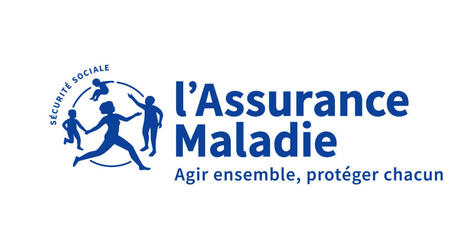 Your new post is loading...

|
Scooped by
HAS-veille
June 26, 2023 8:28 AM
|
Virtual reality therapy - In his debut blog, Steven Parkes considers a trial exploring patient satisfaction and side effects in patients with psychosis.

|
Scooped by
HAS-veille
May 2, 2023 9:49 AM
|
Background Pregnancy and the postpartum period are times when women are at increased risk for depression and mental problems. This may also negatively affect the foetus. Thus, there is a need for interventions with low-threshold access and care. Telemedicine interventions are a promising approach to address these issues. This systematic literature review examined the efficacy of telemedicine interventions for pregnant women and/or new mothers to address mental health-related outcomes. The primary objective was to analyse whether telemedicine interventions can reduce mental health problems in pregnant women and new mothers. The secondary aim was to clarify the impact of type of interventions, their frequency and their targets. Methods Inclusion criteria: randomized controlled trials, with participants being pregnant women and/or new mothers (with infants up to twelve months), involving telemedicine interventions of any kind (e.g. websites, apps, chats, telephone), and addressing any mental health-related outcomes like depression, postnatal depression, anxiety, stress and others. Search terms were pregnant women, new mothers, telemedicine, RCT (randomised controlled trials), mental stress as well as numerous synonyms including medical subject headings. The literature search was conducted within the databases PubMed, Cochrane Library, Web of Science and PsycINFO. Screening, inclusion of records and data extraction were performed by two researchers according to the PRISMA guidelines, using the online tool CADIMA. Results Forty four articles were included. A majority (62%) reported significantly improved mental health-related outcomes for participants receiving telemedicine interventions compared to control. In particular (internet-delivered) Cognitive Behavioural Therapy was successful for depression and stress, and peer support improved outcomes for postnatal depression and anxiety. Interventions with preventive approaches and interventions aimed at symptom reduction were largely successful. For the most part there was no significant improvement in the symptoms of anxiety. Conclusion Telemedicine interventions evaluated within RCTs were mostly successful. However, they need to be designed to specifically target a certain mental health issue because there is no one-size-fits-all approach. Further research should focus on which specific interventions are appropriate for which mental health outcomes in terms of intervention delivery modes, content, target approaches, etc. Further investigation is needed, in particular with regard to anxiety.

|
Scooped by
HAS-veille
April 20, 2023 3:57 AM
|
Background: Rapid proliferation of mental health interventions delivered through conversational agents (CAs) calls for high-quality evidence to support their implementation and adoption. Selecting appropriate outcomes, instruments for measuring outcomes, and assessment methods are crucial for ensuring that interventions are evaluated effectively and with a high level of quality.
Objective: We aimed to identify the types of outcomes, outcome measurement instruments, and assessment methods used to assess the clinical, user experience, and technical outcomes in studies that evaluated the effectiveness of CA interventions for mental health.
Methods: We undertook a scoping review of the relevant literature to review the types of outcomes, outcome measurement instruments, and assessment methods in studies that evaluated the effectiveness of CA interventions for mental health. We performed a comprehensive search of electronic databases, including PubMed, Cochrane Central Register of Controlled Trials, Embase (Ovid), PsychINFO, and Web of Science, as well as Google Scholar and Google. We included experimental studies evaluating CA mental health interventions. The screening and data extraction were performed independently by 2 review authors in parallel. Descriptive and thematic analyses of the findings were performed.
Results: We included 32 studies that targeted the promotion of mental well-being (17/32, 53%) and the treatment and monitoring of mental health symptoms (21/32, 66%). The studies reported 203 outcome measurement instruments used to measure clinical outcomes (123/203, 60.6%), user experience outcomes (75/203, 36.9%), technical outcomes (2/203, 1.0%), and other outcomes (3/203, 1.5%). Most of the outcome measurement instruments were used in only 1 study (150/203, 73.9%) and were self-reported questionnaires (170/203, 83.7%), and most were delivered electronically via survey platforms (61/203, 30.0%). No validity evidence was cited for more than half of the outcome measurement instruments (107/203, 52.7%), which were largely created or adapted for the study in which they were used (95/107, 88.8%).
Conclusions: The diversity of outcomes and the choice of outcome measurement instruments employed in studies on CAs for mental health point to the need for an established minimum core outcome set and greater use of validated instruments. Future studies should also capitalize on the affordances made available by CAs and smartphones to streamline the evaluation and reduce participants’ input burden inherent to self-reporting.

|
Scooped by
HAS-veille
March 20, 2023 8:14 AM
|
Aim: The aim of this systematic review and meta-analysis was to identify, evaluate, and synthesize the evidence from studies that have investigated the treatment effect via telemedicin

|
Scooped by
HAS-veille
February 27, 2023 11:15 AM
|

|
Scooped by
HAS-veille
February 6, 2023 9:34 AM
|
Clinicians and researchers have historically deprioritized incorporating technology solutions into mental health care, leaving a void that's being filled by non-experts. The real experts need to get on board.

|
Scooped by
HAS-veille
January 20, 2023 1:00 AM
|
Background: Anxiety and depression are the most common mental disorders worldwide. Owing to the lack of psychiatrists around the world, the incorporation of artificial intelligence (AI) into wearable devices (wearable AI) has been exploited to provide mental health services.
Objective: This review aimed to explore the features of wearable AI used for anxiety and depression to identify application areas and open research issues.
Methods: We searched 8 electronic databases (MEDLINE, PsycINFO, Embase, CINAHL, IEEE Xplore, ACM Digital Library, Scopus, and Google Scholar) and included studies that met the inclusion criteria. Then, we checked the studies that cited the included studies and screened studies that were cited by the included studies. The study selection and data extraction were carried out by 2 reviewers independently. The extracted data were aggregated and summarized using narrative synthesis.
Results: Of the 1203 studies identified, 69 (5.74%) were included in this review. Approximately, two-thirds of the studies used wearable AI for depression, whereas the remaining studies used it for anxiety. The most frequent application of wearable AI was in diagnosing anxiety and depression; however, none of the studies used it for treatment purposes. Most studies targeted individuals aged between 18 and 65 years. The most common wearable device used in the studies was Actiwatch AW4 (Cambridge Neurotechnology Ltd). Wrist-worn devices were the most common type of wearable device in the studies. The most commonly used category of data for model development was physical activity data, followed by sleep data and heart rate data. The most frequently used data set from open sources was Depresjon. The most commonly used algorithm was random forest, followed by support vector machine.
Conclusions: Wearable AI can offer great promise in providing mental health services related to anxiety and depression. Wearable AI can be used by individuals for the prescreening assessment of anxiety and depression. Further reviews are needed to statistically synthesize the studies’ results related to the performance and effectiveness of wearable AI. Given its potential, technology companies should invest more in wearable AI for the treatment of anxiety and depression.

|
Scooped by
HAS-veille
January 3, 2023 5:21 AM
|
This cross-sectional study assesses the current state of mental health smartphone apps and the association between app privacy scores and popularity as measured by star ratings and downloads.

|
Scooped by
HAS-veille
October 13, 2022 4:41 AM
|
Background: Approximately 800 million people, representing 11% of the world’s population, are affected by mental health problems. The COVID-19 pandemic exacerbated problems and triggered a decline in well-being, with drastic increase in the incidence of conditions such as anxiety, depression, and stress. Approximately 20,000 mental health apps are listed in mobile app stores. However, no significant evaluation of mental health apps in French, spoken by approximately 300 million people, has been identified in the literature yet.
Objective: This study aims to review the mental health mobile apps currently available on the French Apple App Store and Google Play Store and to evaluate their quality using Mobile App Rating Scale–French (MARS-F).
Methods: Screening of mental health apps was conducted from June 10, 2022, to June 17, 2022, on the French Apple App Store and Google Play Store. A shortlist of 12 apps was identified using the criteria of selection and assessed using MARS-F by 9 mental health professionals. Intraclass correlation was used to evaluate interrater agreement. Mean (SD) scores and their distributions for each section and item were calculated.
Results: The highest scores for MARS-F quality were obtained by Soutien psy avec Mon Sherpa (mean 3.85, SD 0.48), Evoluno (mean 3.54, SD 0.72), and Teale (mean 3.53, SD 0.87). Mean engagement scores (section A) ranged from 2.33 (SD 0.69) for Reflexe reussite to 3.80 (SD 0.61) for Soutien psy avec Mon Sherpa. Mean aesthetics scores (section C) ranged from 2.52 (SD 0.62) for Mental Booster to 3.89 (SD 0.69) for Soutien psy avec Mon Sherpa. Mean information scores (section D) ranged from 2.00 (SD 0.75) for Mental Booster to 3.46 (SD 0.77) for Soutien psy avec Mon Sherpa. Mean Mobile App Rating Scale subjective quality (section E) score varied from 1.22 (SD 0.26) for VOS – journal de l’humeur to 2.69 (SD 0.84) for Soutien psy avec Mon Sherpa. Mean app specificity (section F) score varied from 1.56 (SD 0.97) for Mental Booster to 3.31 (SD 1.22) for Evoluno. For all the mental health apps studied, except Soutien psy avec Mon Sherpa (11/12, 92%), the subjective quality score was always lower than the app specificity score, which was always lower than the MARS-F quality score, and that was lower than the rating score from the iPhone Operating System or Android app stores.
Conclusions: Mental health professionals assessed that, despite the lack of scientific evidence, the mental health mobile apps available on the French Apple App Store and Google Play Store were of good quality. However, they are reluctant to use them in their professional practice. Additional investigations are needed to assess their compliance with recommendations and their long-term impact on users.

|
Scooped by
HAS-veille
October 11, 2022 7:44 AM
|

|
Scooped by
HAS-veille
September 6, 2022 2:59 AM
|
Background
A growing body of research shows the promise and efficacy of technology-based or digital interventions in improving the health and well-being of survivors of intimate partner violenc

|
Scooped by
HAS-veille
August 19, 2022 4:26 AM
|
Digital youth mental health interventions - computerised CBT for anxiety and depression is the best digital mental health intervention for young people.

|
Scooped by
HAS-veille
August 12, 2022 4:02 AM
|
Anxiety disorders digital interventions - Theo Kyriacou and Andie Ashdown explore digital health interventions; a promising treatment for anxiety.
|

|
Scooped by
HAS-veille
May 3, 2023 8:25 AM
|
The current landscape of mobile mental-health apps is the result of a 70-year search to automate therapy. Now, advanced AIs pose fresh ethical questions.

|
Scooped by
HAS-veille
May 2, 2023 9:27 AM
|
Background: Mental health problems are a crucial global public health concern. Owing to their cost-effectiveness and accessibility, conversational agent interventions (CAIs) are promising in the field of mental health care.
Objective: This study aims to present a thorough summary of the traits of CAIs available for a range of mental health problems, find evidence of efficacy, and analyze the statistically significant moderators of efficacy via a meta-analysis of randomized controlled trial.
Methods: Web-based databases (Embase, MEDLINE, PsycINFO, CINAHL, Web of Science, and Cochrane) were systematically searched dated from the establishment of the database to October 30, 2021, and updated to May 1, 2022. Randomized controlled trials comparing CAIs with any other type of control condition in improving depressive symptoms, generalized anxiety symptoms, specific anxiety symptoms, quality of life or well-being, general distress, stress, mental disorder symptoms, psychosomatic disease symptoms, and positive and negative affect were considered eligible. This study followed the PRISMA (Preferred Reporting Items for Systematic Reviews and Meta-Analyses) guidelines. Data were extracted by 2 independent reviewers, checked by a third reviewer, and pooled using both random effect models and fixed effects models. Hedges g was chosen as the effect size.
Results: Of the 6900 identified records, a total of 32 studies were included, involving 6089 participants. CAIs showed statistically significant short-term effects compared with control conditions in improving depressive symptoms (g=0.29, 95% CI 0.20-0.38), generalized anxiety symptoms (g=0.29, 95% CI 0.21-0.36), specific anxiety symptoms (g=0.47, 95% CI 0.07-0.86), quality of life or well-being (g=0.27, 95% CI 0.16-0.39), general distress (g=0.33, 95% CI 0.20-0.45), stress (g=0.24, 95% CI 0.08-0.41), mental disorder symptoms (g=0.36, 95% CI 0.17-0.54), psychosomatic disease symptoms (g=0.62, 95% CI 0.14-1.11), and negative affect (g=0.28, 95% CI 0.05-0.51). However, the long-term effects of CAIs for the most mental health outcomes were not statistically significant (g=−0.04 to 0.39). Personalization and empathic response were 2 critical facilitators of efficacy. The longer duration of interaction with conversational agents was associated with the larger pooled effect sizes.
Conclusions: The findings show that CAIs are research-proven interventions that ought to be implemented more widely in mental health care. CAIs are effective and easily acceptable for those with mental health problems. The clinical application of this novel digital technology will conserve human health resources and optimize the allocation of mental health services.
Trial Registration: PROSPERO CRD42022350130; https://tinyurl.com/mvhk6w9p

|
Scooped by
HAS-veille
March 29, 2023 3:29 AM
|
IntroductionVideoconferencing psychotherapy (VCP) delivers treatment to individuals with limited access to face-to-face mental healthcare. VCP's effectiveness has been demonstrated for variou

|
Scooped by
HAS-veille
March 1, 2023 9:24 AM
|

|
Scooped by
HAS-veille
February 8, 2023 5:24 AM
|

|
Scooped by
HAS-veille
January 30, 2023 7:25 AM
|
Ce numéro 3 de la collection Comparaisons internationales analyse les enseignements de la littérature scientifique sur l’efficacité des e-thérapies en santé mentale et explore les modalités de déploiement de ces solutions numériques à l’étranger.

|
Scooped by
HAS-veille
January 16, 2023 7:05 AM
|

|
Scooped by
HAS-veille
November 17, 2022 9:43 AM
|
Mental health apps young people - Belinda Platt highlights a new review of mental health apps for young people.

|
Scooped by
HAS-veille
October 12, 2022 8:58 AM
|
Digital mental health - recent paper focusing on the growing field of digital psychiatry and the future of apps, chatbots, and virtual reality.

|
Scooped by
HAS-veille
September 7, 2022 4:20 AM
|
Background: Depression is a severe psychological concern that negatively affects health in older adults. Serious games applied in various fields are considered appropriate interventions, especially in mental health care. However, there is a lack of evidence regarding the effects of serious games on depression in older adults.
Objective: This study aimed to investigate the characteristics and effectiveness of serious games for depression in older adults.
Conclusions: Serious games were beneficial in reducing depression in older adults. Regardless of the study setting, serious games appeared to reduce depression. Particularly, serious games including PA had a significant impact on reducing depression. Furthermore, high-quality randomized controlled trials are needed to establish substantial evidence for the effectiveness of serious games on depression in older adults.
Trial Registration: PROSPERO CRD42021242573; https://tinyurl.com/26xf7ym5

|
Scooped by
HAS-veille
August 30, 2022 2:07 AM
|
Background: Eating disorders and other forms of disordered eating cause significant complications and comorbidities in patients. However, full remission with current standard treatment remains low. Challenges to treatment include underdiagnosis and high dropout rates, as well as difficulties in addressing underlying emotion dysregulation, poor impulse control, and personality traits. Serious video games (SVGs), which have the advantages of being highly engaging and accessible, may be potential tools for delivering various forms of treatment in addressing the underlying psychopathology of disordered eating.
Objective: This review aims to provide an overview of the possible mechanisms by which SVGs may affect the clinical course of disordered eating, while evaluating the outcomes of studies that have assessed the role of SVGs in the treatment of disordered eating.
Conclusions: The studies included in this review provide collective evidence to suggest the various roles SVGs can play in plugging potential gaps in conventional therapy. Nonetheless, challenges exist in designing these games to prevent potential pitfalls, such as excessive stress arising from the SVGs themselves or potential gaming addiction. Further studies will also be required to assess the long-term benefits of SVGs as well as explore their potential preventive, and not just curative, effects on disordered eating.
Trial Registration:

|
Scooped by
HAS-veille
August 19, 2022 3:59 AM
|
Author summary Mental health concerns are a large burden for individuals, healthcare systems, and the economy. Although mental health concerns affect a lot of people, many find it difficult to access appropriate support. Mobile health apps are one potential way to address long wait times and a lack of mental health resources. With this review, we wanted to provide an overview of mobile health apps that are using artificial intelligence (AI) to provide some type of mental health support and to identify areas where more research is needed. We found 17 studies that evaluated an AI mental health app. There were many different uses of AI in the apps, including to provide conversational support to users, to predict moods, and to do risk assessments. However, the research was still in early stages; most of the studies had small numbers of participants and there is a need for more high-quality studies to evaluate whether the apps have significant benefits for users. This information that we have gathered will help guide the development of future studies and AI mental health apps.
|

 Your new post is loading...
Your new post is loading...




























